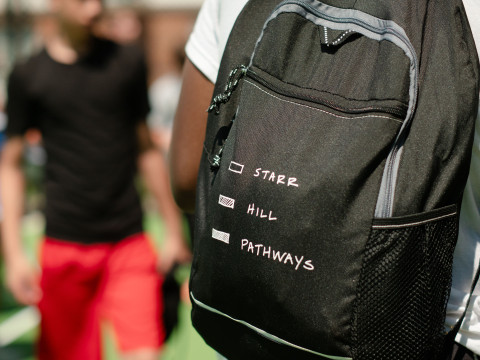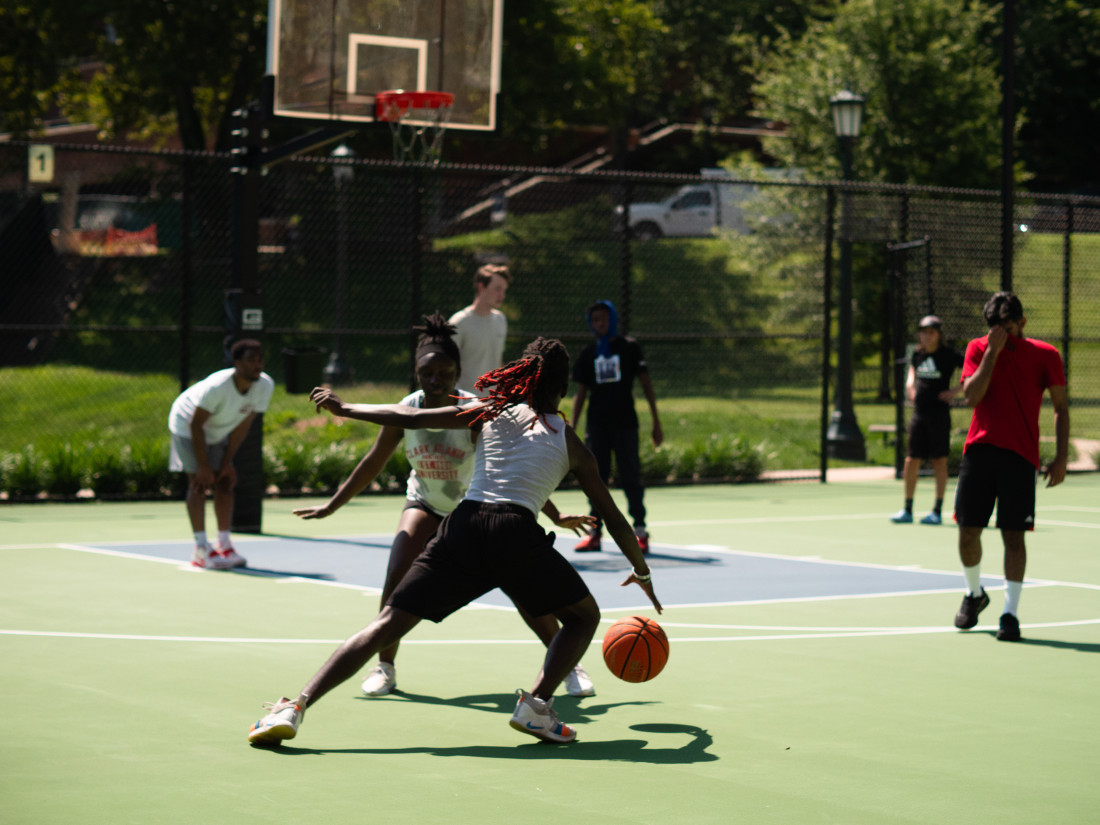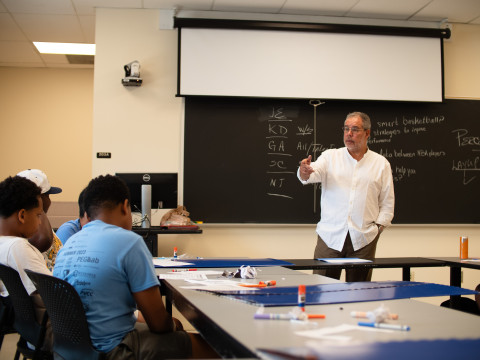
Summer Program Shows Local Students the Possibilities of Data Science

A summer program at the University of Virginia’s School of Data Science did more than just educate a group of young people about what the field was about – it showed them that a career in data science could be for them.
The Starr Hill Pathways program, sponsored by The Equity Center at UVA, provides students enrolled in Charlottesville City and Albemarle County Public Schools a unique opportunity to gain first-hand exposure to a wide range of career possibilities, including in data science. The free, year-long program prioritizes students of color, those from low- and middle-income families, and future first-generation college students.
The program stresses to students that there are no limits to the career options they should consider pursuing. “You can be whatever you want to be – and that includes a data scientist,” said Siri Russell, associate dean for diversity, equity, inclusion, and community partnerships with the School of Data Science. The program built on the work of the school’s Office of Equity and Inclusion and the commitments laid out in its Inclusive Excellence Plan, she said.

Twenty-five rising seventh, eighth, and ninth grade students participated in Starr Hill’s data science pathway, which focused on sports, particularly basketball. Russell worked with a partner group, the Sports Analytics Club Program, and Natalie Kupperman, an assistant professor at UVA’s School of Data Science, to develop and implement the sports analytics pathway. The Sports Analytics Club Program is a national organization that works to boost diversity in advanced STEM studies and inspire a generation of Black and Latino students to consider a career in data science. Kupperman specializes in using data to enhance training and reduce injury risk for athletes and has previously worked with the UVA men’s basketball team.
The sports analytics pathway was divided into two cohorts, with each group of students spending about a week learning about data science and conducting small sports analytics projects alongside UVA School of Data Science doctoral students Beau LeBlond and Jade Preston. In one project, the students set out to determine which of the past 10 NBA most valuable player award recipients had the best MVP season.
The group worked closely with participants in the school’s Data Justice Academy, an immersive, 10-week summer residency program comprised of research fellows who are currently enrolled in undergraduate institutions across the country. Russell credited the Data Justice fellows with making a significant contribution to the success of the program, with fellows developing meaningful connections to the Starr Hill students while working with them one-on-one and in small groups. Two Data Justice fellows made a valuable suggestion for the curriculum: Maria Linares and Srimann Ramachandruni developed an additional exercise in which students created their own all-star WNBA roster based on player statistics.
The students also took the court themselves, collecting data on their success in making a variety of different shots, then using that information to devise a strategy to maximize their scoring performance. The second cohort of students had the opportunity to present their findings to Sports Analytics Club Program representatives Ed Tapscott, a personnel scouting consultant with the NBA’s Minnesota Timberwolves, and Kelsey McDonald, the director of ticketing strategy and pricing analytics for BSE Global, which works with the NBA’s Brooklyn Nets.
Tapscott said that young people who don’t naturally gravitate to math may instinctively assume that data science isn’t for them.
“Don’t be intimated by numbers,” he said when addressing how he approached talking to young people about data science. He added that making data-driven decisions is about thinking for yourself, which requires input, data. “If you learn that at a young age, that serves you for the rest of your life, in any endeavor that you choose,” he said.

McDonald said that using sports as a vehicle for educating people about the power of data science was an effective approach, citing the “passion” she observed among the students she met with
“It meets people where they’re at,” she said.
Russell said that the School of Data Science plans to continue engaging with the Starr Hill program participants throughout the upcoming school year. The notion of empowering middle school students to consider career paths they may not have ever thought of or dreamt was possible was a guiding principle of her and her office’s efforts, she said, noting that this opportunity was possible because of the work of The Equity Center.
“Being able to reach kids at this age, whether or not they decide they want to be data scientists or whether or not they decide they want to even attend the University of Virginia … being able to be a part of them imagining themselves as part of this field is part of our mission,” she said.
“And that’s a special thing.”
Contributing: Cody Huff